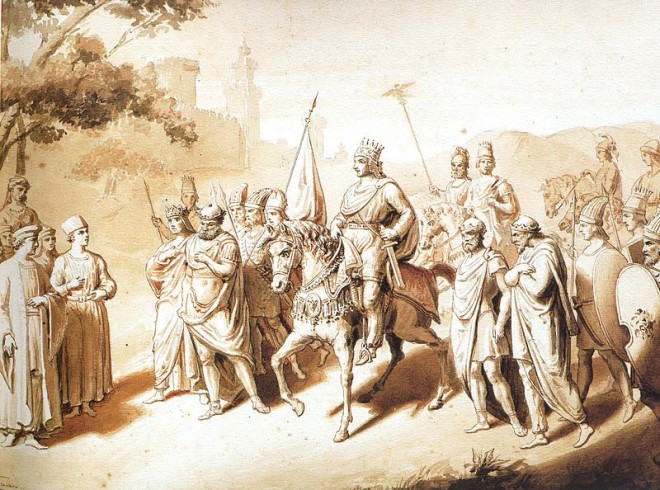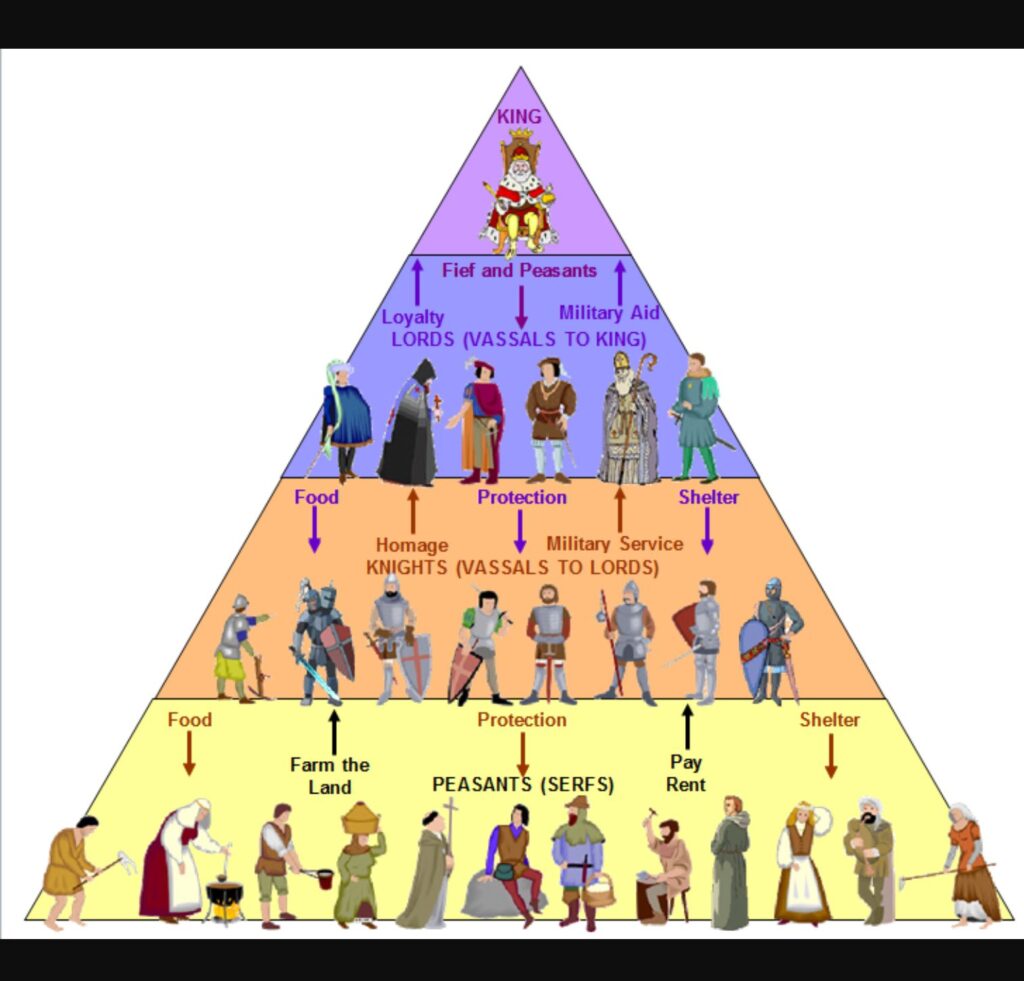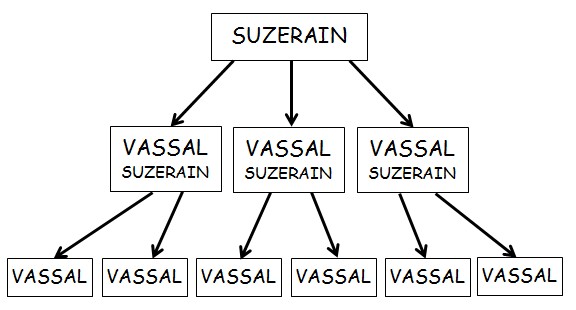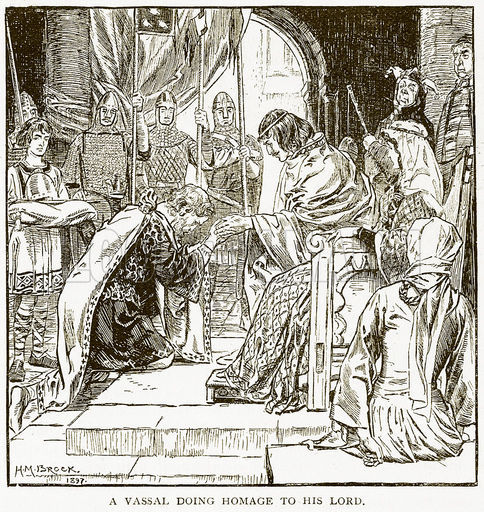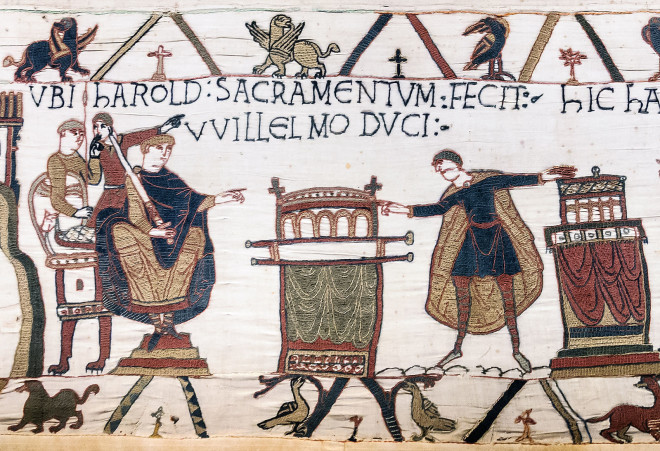One of the most difficult concepts to understand is how the Savior saves us. The vassal – king relationship explains the father-son relationship and the savior role. It is key to understanding the Savior and the Father and covenants and how we are saved. I suppose if we had lived during the era of kings and vassals and emperors and suzerains, we would understand this better.
But from our perspective, in the 21st century, we have no clue (unless you are a history buff or happen to play a particular massively multiplayer online role-playing game.) I first heard of vassals in 1999, when I overheard my sons talking about their online game called Asheron’s Call. Avraham Gileadi explained the vassal – emperor relationship in one of his early seminars on the book of Isaiah:
Just as the emperor was bound by the terms of the covenant to deliver his vassals from a mortal threat if they kept his law, so Jesus Christ, as his people’s “Father,” was bound to deliver them from the ultimate mortal threat, which was death itself. (Avraham Gileadi)
When we understand these ancient roles, we will have a greater understanding of the proxy savior role and how or why Jesus will save us when we keep His law. And how the Davidic servant will take on the role of proxy savior in the last days. The Vassal- King covenant explains the Father and Son, and that exemplifies other father-son roles, such as when Helaman saved all 2000 of his “sons.” It explains covenants, blessings and curses, and deliverance. It describes how King Hezekiah became a proxy savior for his people. It’s almost magical. But not easy, as it includes suffering and leveling up spiritually.
But it’s easier to understand when you study the feudal system.
The King, Emperor, or Suzerain is at the top — and just below him are Lords or Vassals to the King; below that are Knights or Vassals to the Lords.
If the relationship was familial or friendly, the parties are referred to as “father” and “son.” If the relationship is bereft of kindness and intimacy, the parties are referred to as “lord” and “servant,” or “king” and “vassal,” or “greater king” and “lesser king.” The greater king is the suzerain and the lesser king is a prince, or a lesser lord in the service of the greater king. The lesser lord is a representative of all the common people who are under the protection of the greater king. (Suzerain Treaties & the Covenants in the Bible)
In the case of individual infractions within this hierarchical arrangement, heads of households answered to their vassal king for the disloyalties or misdemeanors of their households, and vassal kings answered to the emperor for the disloyalties or misdemeanors of their people. In other words, the term “father” became synonymous with being a proxy for those over whom one exercised a stewardship. Each “father” was responsible as a “son” to his “father” for those to whom he ministered.In the case of individual infractions within this hierarchical arrangement, heads of households answered to their vassal king for the disloyalties or misdemeanors of their households, and vassal kings answered to the emperor for the disloyalties or misdemeanors of their people. In other words, the term “father” became synonymous with being a proxy for those over whom one exercised a stewardship. Each “father” was responsible as a “son” to his “father” for those to whom he ministered. (Avraham Gileadi, Studies in the Book of Mormon
)
All of this allegiance was formal, much like a treaty or covenant. The agreement between a lord and his vassal was known as a suzerainty or vassal treaty, and the two parties considered as “Lord” and “son.” (Robert Bradshaw) An example of an ancient oath of the vassal to the lord reads as follows:
“Everyone knows I have nothing to feed me and clothe me. That is why, my lord, I asked for your mercy, and you kindly grant me the favor to place myself under your protection. I do it if you give me enough to live in exchange for my services … As long as I live, and while remaining free, I will serve you faithfully. But in exchange, I’ll stay all my life in your power and protection. ” (Chronicles of Jean Froissart, fifteenth, National Library of France)
Avraham Gileadi explains that learning about this concept opened his eyes to greater understanding:
I’m glad I went to Toronto [School of Theology] because there I learned something very, very, important. That was the idea of emperor -vassal covenants of the ancient East – basically the foundation of covenant theology of the Old Testament, the New Testament and Book of Mormon and temple covenants. Without an understanding of emperor-vassal covenants (it’s all through my books now,) you can’t understand the Atonement of Christ, you can’t understand what the end time proxy Saviors are all about- which are KEY to the whole end time scenario. And we cannot rise to the spiritual level that the Lord wants us to rise to at His 2nd Coming until we embrace that principle and live up to those covenants and understand what our temple covenants are all about and what they involve- more than just mouthing a few words. (Avraham Gileadi Interview, location: 36:19)
When Jesus kept the law of His Father — God the Father was bound to save His son — bringing Christ back to life through resurrection. If we keep the laws of Christ, He is then bound to save us.
The king (or queen) is anointed to serve as a king below the King of kings — and a king to his vassals — to protect a covenant relationship. You obey my law, as I obey the law of my Father, the great High King. In the sacred anointing ceremony, a Father-Son relationship is established — becoming a Son or a Daughter of God includes the implication of agreeing to serve as a proxy-savior; that is, a willingness to suffer to obtain deliverance of those for whom you are responsible.
Even Queen Elizabeth of Britain took an oath symbolic of this role.
Originally posted 2015.

